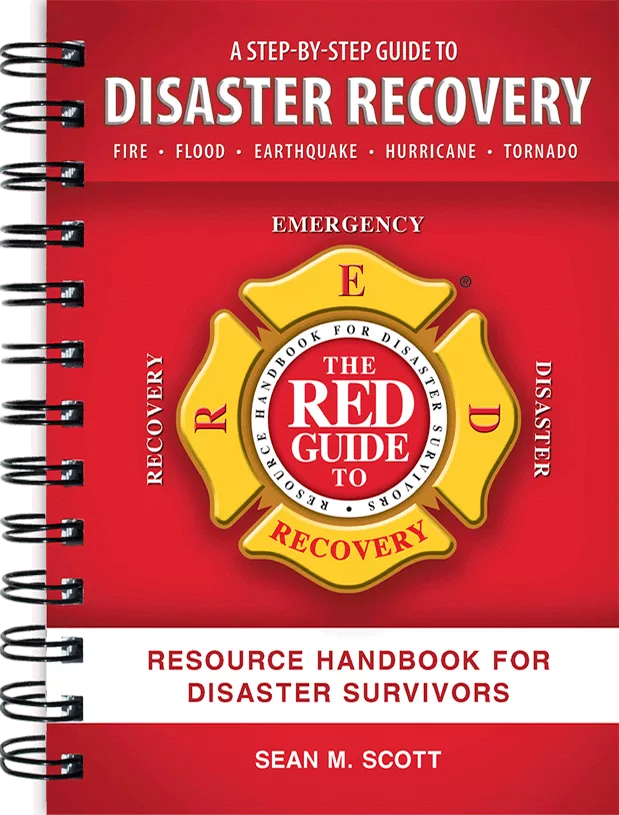Communicating with Intention Makes a Difference to Clients, Coworkers
Simple words mean a lot. Do you make your restoration clients, colleagues and employees feel “happy there”?

Photos: Getty Images
Last month, I decided to take an early Sunday morning flight home from Florida so I could spend some time with my wife before the work week started. I scheduled an Uber to pick me up at 4:45 am and tried to get some sleep.
The next morning at 4:35 am, a notification popped up on my phone to let me know that my driver had arrived—early, even for an early morning pickup. I grabbed my suitcase and walked outside to be greeted with, “Good morning Josh … I am Nelson!”
He took my bag and loaded it into the trunk, which was already open. Before I could get to the passenger door, he was there and opened it ahead of me. I thanked him and we were off. Nelson made a little small talk about where I was headed and why I had been in Florida. But mainly, we just rode together the 27 miles to the airport, both starting our day before most other people were even awake.
Upon arriving at the airport, Nelson sprang from the car, unloaded my bag, and set it on top of the curb for me. As I thanked him again, he extended his hand and, after a hearty handshake, Nelson looked me in the eye and said, “Happy there!”
I am not sure how I replied, outside of some garbled, confused version of thank you. What is the appropriate response to “Happy there”? Really, what does it even mean? All I know is that it was genuine, heartfelt, and left me staggered.
I proceeded with my normal airport routine, then grabbed a coffee and found someplace quiet to sit and ponder my morning’s interaction with an unusual man named Nelson who had picked two of the simplest words in our language to wish me well.
From our conversation on the ride, I could tell that English was not Nelson’s first language. Perhaps his wording was just a slip or perhaps in his native tongue the salutation was more common. He didn’t wish me a pleasant journey or safe travels, but he did want me to be happy when I got there. Nelson had no idea what was waiting for me on the other side of my flight but, unbeknownst to him, he had just challenged me to look for the good in whatever it might be.
How do you work such a “Happy there” approach into your day, your work, your life? Let’s look at a few ways Nelson’s advice from the curb at an airport can find its way into your day-to-day.
The little things… How easy would it have been for me to move on from Nelson and just go about my day, focused on making it through security, finding my gate, and trying to get some sleep on the plane? I think I was paying attention to Nelson because he was intentional with me first. Showing up early, having the trunk open and waiting, opening my door, placing my bag on top of the curb so I didn’t need to lift it, and the handshake (which I can tell you from a guy who takes many Uber trips, was unusual).
I know it’s cliché, but the little things really do make a difference. Taking the sidewalk to a customer’s door instead of walking across the grass. Stopping to grab the newspaper or returning their trash bin on the way. Tucking in your shirt. In a business where so much of what’s happening is beyond your control, it becomes that much more important to take the time to focus on the small items within your control. These seemingly little things give you a platform to influence the outcomes of the big things.
Listen well… I know my ride with Nelson was early, but he didn’t feel the need to fill the time with words just for the sake of words, which is a talent I recognize and appreciate. He spoke when it was important, set me at ease, and then listened for the remainder of the trip for any way he could make my ride better. I am confident that had I asked for some music or a change in temperature, Nelson would have happily accommodated.
How often do you fill the empty space in your day with empty words? Resist the urge to fill that space. In the silence, uncomfortable as it may be, people are given time to think, and some really cool things can begin to happen. Conflicts erode. Solutions are created. Relationships built.

Communicate anyhow… As I mentioned earlier, from listening to Nelson’s accent, I concluded that English was his second language. To him, this was not a hinderance, just a fact that he could work around. He could have chosen to see me off with a simple goodbye. Instead, he made the decision to put together what he meant with the words he had, and what came out was “Happy there!” The intent was not lost on me. Nelson chose to communicate.
Do you ever find yourself without the right words or maybe what you feel aren’t the right ones? What would happen if you just used the words you do have to communicate anyway? I would say to deliver your message and do it with intent. I know from my own experience that my fear of not having the best or the smartest words has caused me to walk away from situations with conversations not had. In both personal and business situations, I can look back and see how even a few simple, jammed up, or poorly phrased words with the right intentions could have yielded significantly better results than not speaking at all.
Learn from Nelson and choose to communicate anyhow. Use what you have, use it often, and people will understand the message you are trying to convey. An email or text sent or a phone call made even with simple words is better than no communication at all.
The words that count… For a second, let’s break down what Nelson was actually trying to say to me. “Happy there.” Not really a difficult concept and he made the wise decision to choose simple words to express the idea. Maybe it wouldn’t have been my first choice of wording, but the message was received loud and clear. Too often, I find myself trying to use fancy words to describe a simple thought and end up losing my audience, my message, or both.
Not only did Nelson choose substance over style, but he chose to say something good; something to build up and not to tear down. Choose good words for the people in your world. You might just be amazed at what a sincere “Good morning” would mean to the guy behind the desk. A “How are you doing?” to the woman making the delivery. How much more important might your words be to those you count on in your business or your life? The power of your words goes far beyond what you may at first think. And that works in both directions, to make things better or to make them worse.
Delivery counts as well. Nelson made eye contact and partnered his words with a firm handshake. Imagine a situation where you just growl out what you are actually thinking and let those words become the responsibility of the receiver. In my opinion, the burden is on the giver to stop, think, and deliver the message in the best way they know how. Even a tough situation, such as holding someone accountable or giving difficult feedback, can be made better when the message is delivered well. Your words truly count, so choose them wisely.
Some simple words, delivered in a simple interaction, on a simple Sunday morning really got to me. They had me thinking about them for the entire flight home.
Nelson, thank you for paying attention to the little things; allowing it to be quiet so you could listen well; casting aside any fear of messing it up to communicate anyhow; and choosing words that count. I truly hope that wherever you may be, you are “Happy There.”
Looking for a reprint of this article?
From high-res PDFs to custom plaques, order your copy today!








